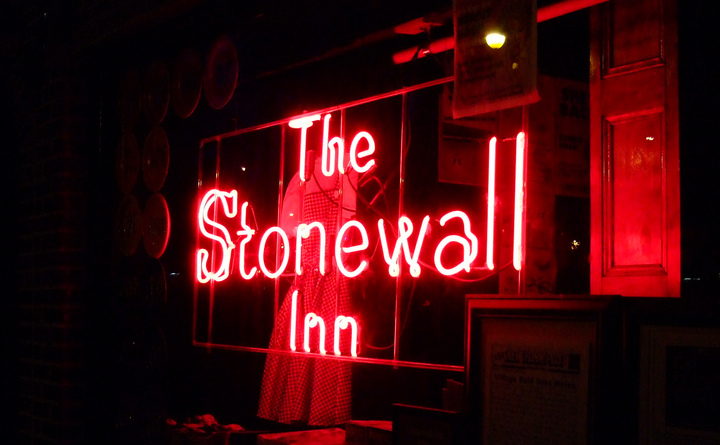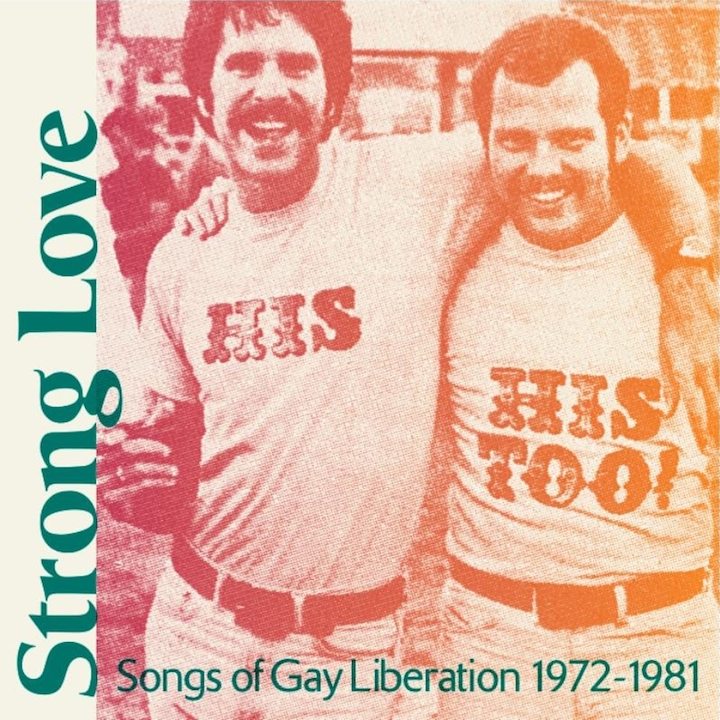
Chapter Music’s Strong Love: Songs of Gay Liberation 1972–1981
The digitisation of vast back catalogues of music has made music historians of all of us. Consumers can now access nearly any recorded music they want, and are thus encouraged to explore their favourite genres of music in great depth. Paradoxically, this also encourages a kind of dilettantism. When Duncan Brooker released his Afro-Rock Volume One compilation in 2001, West African pop music of the 1970s (with the notable exception of Nigerian Afrobeat pioneer Fela Kuti) was practically unknown in the developed world; now there are dozens of blogs dedicated to digitising whole tranches of this music, and an aspiring Jùjú music aficionado can download in a single afternoon what might originally have taken Brooker over a decade to track down.
In this flood of music, the role of the curator becomes more important even as that role becomes democratised (after all, anyone can now create an iTunes playlist and burn it to disc). This tension between the increasingly important role of the curator and the ubiquity of past music has created something of an arms race in the field of compilation albums. It’s no longer enough to merely select a range of songs that either exemplify a particular musical niche or illustrate a musico-historical narrative; the marketplace now demands rarity and the bringing to light of what previously remained unknown.
This quest for rarity defines Strong Love: Songs of Gay Liberation 1972–1981, compiled by Guy Blackman and released on his own record label, Chapter Music. Each of the tracks here has been taken from an album that was self-released or from a very small label. (The sole exception is Steven Grossman’s ‘Out,’ which appears on his album Caravan Tonight, released by Mercury in 1974; even so, the process of licensing the studio version of this track was so tortuous that Blackman instead licensed a version played live on KFPA’s Fruit Punch radio show.) For this labour of love, Blackman deserves credit three times over: for preserving these rare cultural artefacts, illuminating an important era in the history of sexuality, and selecting a group of songs that are eminently listenable in their own right.
As the subtitle might suggest, Strong Love is concerned with songs that explicitly address the politics and lived experience of being a gay man in the 1970s. (One song, Blackberri’s ‘It’s Okay’, was released in the 1980s, and even so only because the release his debut album had been delayed for several years owing to a lack of finances.) It therefore provides a unique musical insight into one of the most interesting decades of sexual politics, the decade that came after the riots at the Stonewall Tavern in 1969 and before the discovery of HIV/AIDS in 1982. In that decade, a large number of young men and women in the West made their homosexuality public and, inspired by the successes of the women’s liberation and black power movements, started to agitate not only for the right to equal treatment under the law but also for cultural and social recognition. And, like all other popular movements of the second half of the twentieth century, it had a soundtrack—hedonistic, resolutely un-political disco music (for gay men) and the well-organised, highly politicised womyn’s music scene (for lesbians). Strong Love explores neither of these well-anthologised music scenes, instead cleaving to the music produced by a fleeting and small collection of politically active gay male musicians.
For this reason, nearly every song on this compilation is explicitly political—even Lavender Country’s heartbreak ballad ‘Cryin’ These Cocksucking Tears’ opens with the following blunt couplet: “I’m fightin’ for when there won’t be no straight men, ’cause you all have a common disease”. Modern listeners accustomed to the individual focus and self-reflexivity of contemporary ‘political’ music—think Lady Gaga’s ‘Born This Way’—will find both the collective focus and earnestness of some of the material here foreign, if not cringe-worthy: “Listen to me sister, and hear me brother, too,” begins compilation opener ‘A Gay Song’, “this song contains a message, and it might apply to you”. Similarly, Tom Robinson’s 1975 track ‘Good To Be Gay’, with its sunny guitar licks and sing-along chorus (“We all come together ’cause we’re happy to say, it’s a natural fact that it’s good to be gay!”), sounds almost hopelessly naïve when heard in the context of current gay rights activism. (Three years later, Robinson would write the similarly titled ‘Glad To Be Gay’, a song dripping with bitter irony that would become much better known than the song included on this release.) Of course, as the New Left constantly sought to remind us, the personal is political, and even what might now be seen as unthreatening expressions of gay male desire deserve to be read as political statements in the context of a homophobic broader culture. So it is that Smokey’s hedonistic ‘Strong Love’—an uneasy marriage of primitive synthesis and a rock beat that predates Donna Summer and Giorgio Moroder’s influential ‘I Feel Love’—finds its way onto this compilation: not because it intends to be political, but because in its frankness about gay male desire it can’t help but be.
One of the great tragedies about the music collated here is that it had such a small audience: most of the songs were pressed in very small vinyl editions, and distributed through unorthodox channels (selling directly to friends and political allies, or simply given away). The authors of these songs frequently remained unaware of each other, separated by geographical and cultural distances that air travel and mass media had only started to collapse. Paradoxically enough, Strong Love may suffer the same obscurity as the material it collects, but for entirely different reasons. The political landscape in general and the gay rights movement in particular have radically changed in the intervening years: these songs do not speak directly to young gay men’s experiences, and queer radicals will find the lack of lesbian, bisexual and transgender perspectives potentially alienating. As such, Strong Love’s audience will primarily consist of history buffs—musical historians, historians of sexuality, or both. In spite of this, Strong Love is a compilation that deserves a wide audience: not only for its heroic preservation of an endangered musical history, nor merely for its illumination of a political movement that radically changed Western societies, but also because it contains some excellent music and musicianship.
